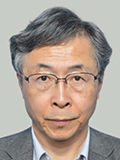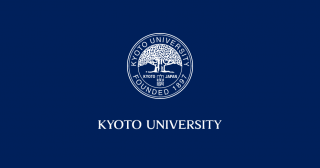
On 1 October, KyotoU Professor Emeritus Rui Tamura received the 2020 N M Emanuel Medal from the Russian Academy of Sciences (RAS) and Moscow State University (MSU), for his achievements in "Research on Chemical Complexity Phenomena: Discovery of Superparamagnetic Organic Radical Soft Materials and Application to Theranostic Metal-Free Magnetic Nanomedicine".
The Emanuel Medal was established in 2007 in commemoration of Nikolay M Emanuel (1915-1984), a renowned scientist and founder of RAS' N M Emanuel Institute of Biochemical Physics. It has since annually honored achievements in fundamental chemical and biochemical physics research by four scientists: two Russian and two foreign nationals. Dr Tamura became the first Japanese awardee.
As part of his quest to discover chemical complexity phenomena and uncover their mechanisms, Dr Tamura began work with his colleagues in 2004 on the development of metal-free magnetic soft materials that are responsive to external magnetic and electric fields. The effort was based on an understanding of liquid crystal (LC), a common functional material, as a complex system that has a dissipative structure and is highly sensitive to external stimuli. The undertaking culminated in the world’s first synthesis of a stable metal-free organic paramagnetic LC molecule with a chiral cyclic radical unit in its core, and the invention of a chiral LC that has both electrical and magnetic polarities.
Furthermore, studying the newly synthesized LC materials, the team found in 2006 that the compounds display ferroelectricity in LC phases, and in 2008 that they exhibit superparamagnetic behaviors (forming ferromagnetic domains) as well. In 2012, the researchers termed this superparamagnetic phenomenon a ‘positive magneto-LC effect’. In the following year, they revealed for the first time that in high-temperature LC states, these ferroelectric and superparamagnetic materials show a magneto-electric effect. The scientists then investigated the phenomenon by synthesizing organic radical LC materials of various compositions, which enabled them to establish the effect's generality and identify its possible mechanisms.
In recent years, Dr Tamura has applied his findings about magnetic LCs' superparamagnetism to the study of micelles and emulsions, resulting in the development of a stable metal-free magnetic nanoemulsion (mixed micelles) containing an anticancer agent, which can be tracked using magnetic resonance imaging (MRI).
It is in recognition of these achievements — realizing unique ideas that are based on complexity theory, and pioneering new directions for LC and colloid sciences — that Dr Tamura was selected for the 2020 Emanuel Medal.





